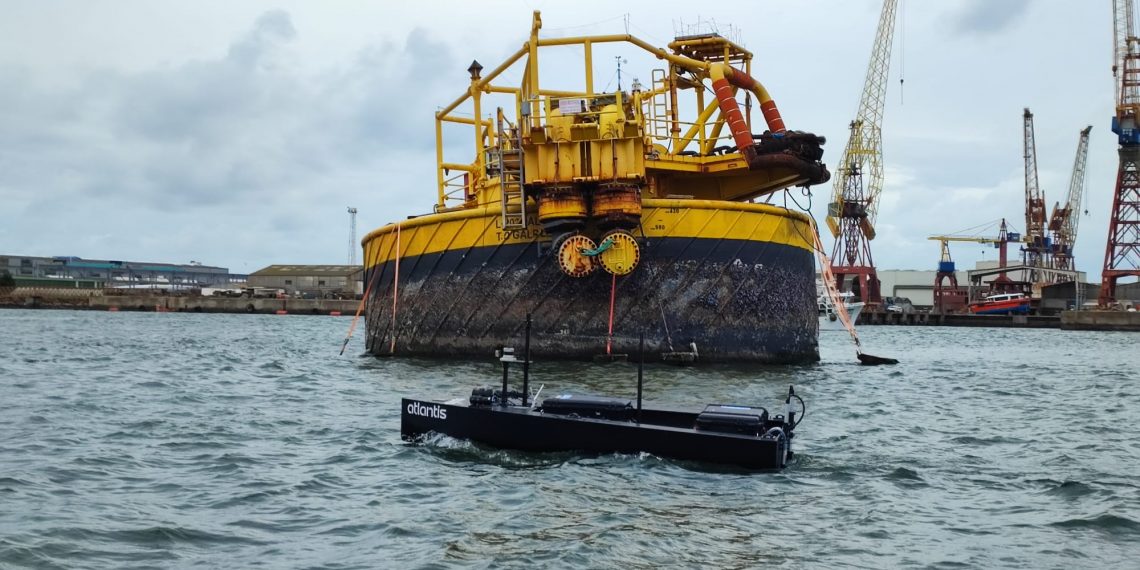The European project ATLANTIS, led by INESC TEC, launched a call to select and support start-ups, small and medium-sized enterprises (SMEs), universities and research centres that develop robotic offshore inspection technologies. The applications are open until February 26; the selected applicants will be able to test their technologies without any costs.
The main goal of the latest call by the European project ATLANTIS is to promote the use of robotic technologies for the inspection of offshore structures, particularly wind turbines. The use of robotic vehicles operating offshore will allow covering the operational costs related to the inspection and maintenance of wind turbines (currently representing close to 30% of the total costs of wind farms). This reduction will lead to a reduction in energy consumption costs.
Andry Maykol Pinto, INESC TEC researcher, professor at the Faculty of Engineering of the University of Porto (FEUP), and project coordinator, explained that this call will facilitate the entry of new robotic technologies into a strong international market, “first, by supporting companies and scientific institutes that develop robotic technologies through subsidised tests, and second, by demonstrating the added value of this technology to maritime asset owners”.
Aimed at European start-ups, SMEs, universities, and research centres dedicated to the development or implementation of services resorting to robotic maritime inspection technologies, the call is open until February 26 and will select at least three organisations.
The activities planned for the call are expected to start in July and include tests at the ATLANTIS Test Centre, which features pioneering facilities at European level (built within the scope of said project), located in Viana do Castelo. In this sense, the selected entities will be able to benefit from the infrastructures and services of said Centre, testing their technologies on the coast or at offshore locations.
It will be an opportunity to test Unmanned Aerial Vehicles (UAVs), Remotely Operated Vehicles (ROVs), Autonomous Underwater Vehicles (AUVs) and Autonomous Surface Vehicles (ASVs). In addition to these technologies, the selected entities will be able to test operation optimisation software or artificial intelligence tools for maritime assets inspection.
Located in Viana do Castelo, the Centre provides unique conditions for carrying out said tests – not only in atmospheric terms, but also in terms of risk reduction for the validation of technology in an almost real environment.
Andry Maykol Pinto explained that “the financial support provided to the selected entities encompasses all operational costs at the Atlantis Test Centre and specialised technical support to carry out the tests”. The project coordinator believes that this is a “unique opportunity for companies, as they will be able to quantify the performance of their products, without any cost, while increasing the visibility of their commercial portfolio to potential customers”.
The proposed technologies must be aligned with the proposed inspection scenarios established by ATLANTIS project – which are available on the project’s page.
The INESC TEC researcher mentioned in this news piece is associated with UP-FEUP.



 News, current topics, curiosities and so much more about INESC TEC and its community!
News, current topics, curiosities and so much more about INESC TEC and its community!